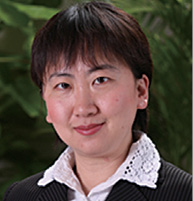The senior care industry in China is a sector in which the government is focusing its support. China has a population of approximately 200 million elderly, a number that will increase to 400 million by 2050, making China the country with the world’s largest population of people aged 60 and older.
Generally speaking, the industry consists of four broad segments: the senior care service industry; senior care real property industry; senior care finance industry; and senior care product industry. As investment in certain economic sectors is approaching saturation, and the aging population problem becomes more serious, the central government is actively encouraging private investment and the entry of foreign capital into the industry.

MARIA MA LIHONG
天达共和律师事务所合伙人
Partner
East & Concord Partners
The Catalogue for Guiding Foreign Investment in Industry encourages foreign investors to invest in and establish senior care facilities in China. Domestic senior care facilities are also eligible for incentive policies, which are available to qualified foreign investors. For example, with regard to tax incentives, the Implementing Opinions of the Ministry of Civil Affairs on Encouraging and Guiding Private Capital into the Senior Care Service Sector specify that: business tax is exempted on care services offered by senior care facilities and service facilities established with private capital; qualified non-profit senior care facilities and service facilities are exempted from real property tax and the urban land use tax on the real property and land that they use, and the tax-exempt revenue is not counted as part of their income subject to income tax; and the various types of senior care facilities and service facilities pay the same price for electricity, water, gas and heating as residential households in accordance with relevant regulations.
Local governments are also actively issuing localized incentive policies. Beijing has substantively incorporated senior care land into its state-owned construction land supply plan, increasing the supply of senior care land by such means as increasing and revitalizing the stock of such land. The Beijing Municipal Civil Affairs Bureau and Finance Bureau have also issued the Opinions on Implementing Comprehensive Liability Insurance for Senior Care Service Facilities, deciding to implement “senior home comprehensive liability insurance” within the entire municipality.
The government subsidizes 80% of the insurance premiums and the senior care facility covers 20%, thus providing policy support for reducing the risks of constructing and operating senior care facilities. Senior care facilities are also eligible for various subsidies, e.g., an operating subsidy of RMB200 (US$30) to RMB300 per bed is available in Beijing. In short, the entry of foreign capital into the Chinese senior care market is encouraged by the government, and the corresponding incentive policies are available to foreign investors.
The Measures for Permits for the Establishment of Senior Care Facilities, issued in 2013, also permit foreign investors to establish senior care facilities in the form of wholly foreign-owned enterprises and equity joint ventures, subject to the permission of the civil affairs authority. The Shanghai Free Trade Zone (FTZ) also permits foreign-invested enterprises to establish medical institutions in the form of wholly owned subsidiaries.
In 2013, the Ministry of Commerce (MOFCOM) and the Ministry of Civil Affairs issued the Notice on Matters Relevant to the Establishment by Hong Kong and Macau Service Providers of For-Profit Senior Care Facility and Disabled Facility Services on the Mainland, permitting Hong Kong and Macau service providers to newly establish or acquire for-profit senior care facilities and disabled service facilities on the mainland in the form of Sino-foreign equity joint ventures, Sino-foreign co-operative joint ventures and wholly foreign-owned enterprises. A Hong Kong or Macau applicant is required to have a good reputation and the operational wherewithal, and at least one of the service providers is required to have at least three years experience in providing senior care services or services to the disabled in Hong Kong or Macau.
Additionally, a Hong Kong or Macau service provider is required to satisfy the definition of “service provider” and the requirements of relevant provisions of the Mainland and Hong Kong Closer Economic Partnership Arrangement, or the Mainland and Macau Closer Economic Partnership Arrangement and its relevant supplementary agreements.
FOREIGN ACQUISITIONS
When a foreign investor proposes to acquire a senior care service facility, in addition to paying attention to the basic particulars of the target enterprise, such as equity structure, corporate performance, personnel and asset details, it needs to look closely at the following:
First, it needs to clearly determine whether the target is a for-profit or a non-profit, since different incentive policies apply. For example, in terms of land policy, the senior care service facility land for a non-profit senior care service facility may be provided by allocation, whereas the land for a for-profit one is required to be supplied for consideration, such by as by lease, grant, etc.
Second, the nature and term of use of the land and premises need to be examined. Normally, the nature of the land for a senior care service facility should be medical, health and charity land. However, in some instances, the senior care service facility may have been established by modifying and using a vacant factory, school or community centre, and once the term of the land specified by the government (currently five years) expires, an annual land rent or land yield spread premium will be charged, and procedures will need to be carried out to change the nature of the use of the land.
Third, the acquisition target’s licences, certificates and qualifications need to be examined to determine whether they are all in order. In addition to the business licence, it needs to be ascertained whether the target has a senior care facility establishment permit and, if it provides medical services, a medical institution practice permit. Finally, such details as the number of beds that the acquisition target has, what its occupancy rate is like, and whether it is benefiting from government subsidies need to be examined.

The senior care industry is a sunrise industry in China, but existing problems include poor co-ordination among regulators and inconsistent quality among market entities. However, risky areas also harbour vast opportunities, and some foreign investors with foresight are already testing the waters in China’s senior care industry. In the foreseeable future, there will be even more capital seeking opportunity in this industry.
Maria Ma Lihong is a partner at East & Concord Partners
北京市朝阳区东三环北路8号
亮马河大厦写字楼1座20层 邮编:100004
20/F Landmark Building Tower 1
8 East 3rd Ring Road North, Chaoyang District
电话 Tel:+86 10 6590 6639
传真 Fax:+86 10 6590 6639-9
电子邮箱 E-mail:
malihong@east-concord.com
www.east-concord.com






















